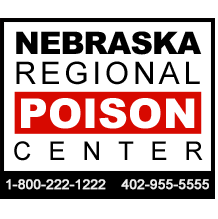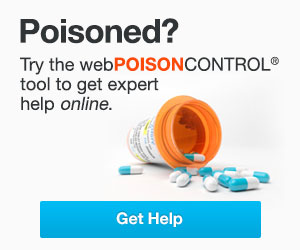The Nebraska Poison Center is a free, 24-hour emergency telephone service designed to assess and make treatment recommendations during possible poisonings. The Nebraska Poison Center also provides public and professional education programs, collects data on poisonings, conducts research in the field of clinical toxicology and assists first responders during hazardous materials incidents.
Other Questions?
Email our staff of healthcare professionals to answer questions not found on this website. Send emails to the Nebraska Regional Poison Center. Please do not email us with poisoning cases. CALL 1-800-222-1222 for an immediate response to health related poison questions.

